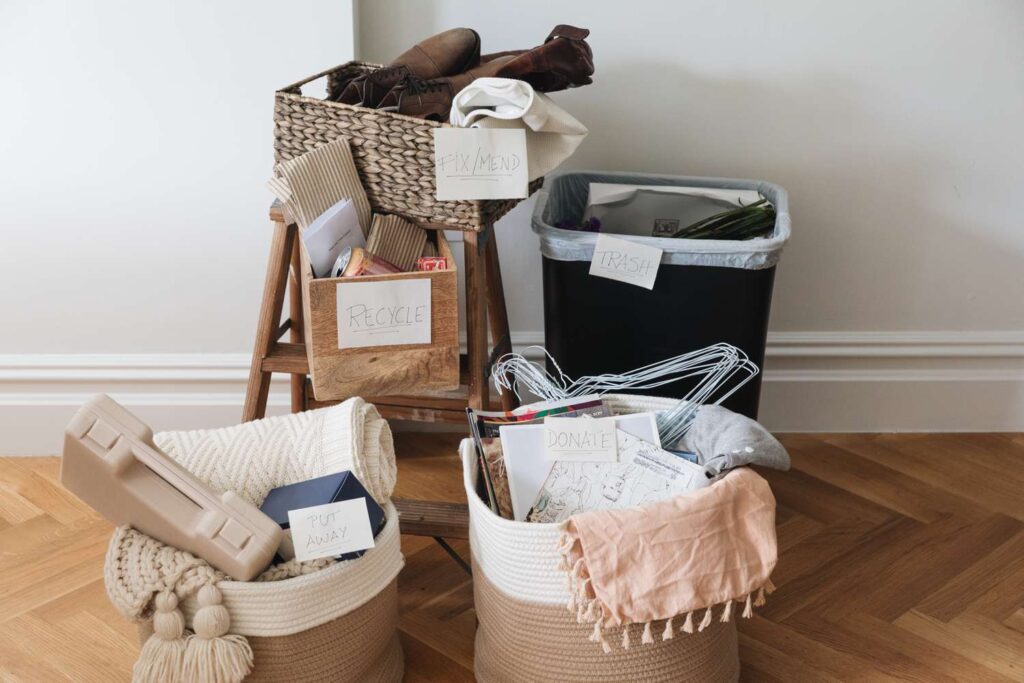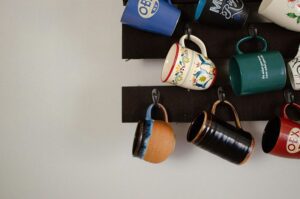
Managing clutter is harder than ever – why?
Managing clutter is harder than ever – Consumerism and mass production
Aquiring stuff is cheaper and more convenient than ever. People get dopamine hits and retail needs met so quickly, they don’t have time to re-think it. In theory, we can return items that don’t fit expectations, but often we are too busy for that, and ‘the thing’ becomes clutter. Or we are happy with ‘the thing’, but we don’t actually need it, so it becomes clutter anyway.
We can complain about offshore companies like Amazon, but for a spot of retail therapy, how cheap is your local Kmart? They have lovely stuff. Those impulse buys and non-essentials available for the price of a coffee were once reserved for special occasions or gifts. Now they arrive in a box on the doorstep without us even remembering what we ordered.
This kind of stuff is often poorly manufactured, meaning we are constantly buying replacements yet not necessarily removing the old, tired versions. It’s a disposable society, which is bad for the earth, but we often don’t dispose, which is bad for us. Those shabby Kmart chairs are quickly replaced with shiny new ones and end up in the spare room or shed. The toys we keep buying break soon after purchase, but the kids still look at them occasionally, so we hang onto them.
Meanwhile, we keep buying. And buying. And not decluttering, because decluttering is hard! At the same time, real estate is getting more expensive, so we can afford the stuff but not the storage space.
Solution
Minimise your stuff, and stop (or slow down) the process of acquiring. More stuff means more work. We spend so many hours researching, acquiring, returning, repairing, and re-organising our stuff. Not to mention the pain of cleaning around it.
Consumerism teaches us to solve every problem by adding something new, but we can often solve problems by removing instead.
Get off the consumerism treadmill. Break your addiction to clutter. Corporations reap the benefit of your purchases, but you don’t.
Managing clutter is harder than ever – Marketing
Related to the above, keeping up with the Jones’ is rampant, and social media means we have access to all the marketing, all the time. TV advertisements back in the day weren’t targeted, so we would sit through ads for household items we had no interest in. But now, online algorithms are sophisticated, meaning that temptation is always in front of us.
Solution
Unsubscribe and get offline sometimes. Remember that you. Are. Enough. As you are!
Managing clutter is harder than ever – Work and play
Gone are the days when Mamma Bear stayed home and managed household belongings between school drop-offs, toddler naps, and making beef stroganoff and rissoles.
These days we are all busy working, doing fun stuff, keeping fit, breathing and meditating, and also buying things we have no time to manage, including ‘time saving’ devices also known as unitaskers. They purport to do one thing really well (pit an olive, make a pie, clean a certain type of flooring), but the volume of our stuff is so high that we can’t find anything anyway.
Meanwhile, communities are so disconnected that we’re less likely to borrow from neighbours – instead, we feel the urge to be independent and own everything we ever need, even if we only use it once. Again, unitaskers.
Solution: Declutter, and be ok with not having all the things. Minimalists may spend an extra second pitting an olive, but generally, they have very little housework.
It’s not just you. Managing clutter is getting harder. But you can fight back. Have less, acquire less, and don’t believe the advertisers.






























